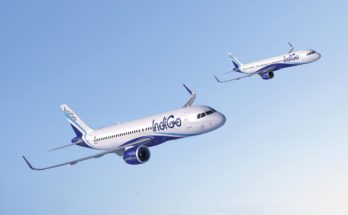In the wake of the Russian invasion of Ukraine and the imposition of far-reaching Western sanctions on the Russian aviation industry, global commercial aviation lessors have been plunged into a chaotic scramble to reclaim physical ownership of their assets leased to Russian companies, collectively worth billions of U.S. dollars.
These efforts had already taken on an added urgency when Russian President Vladimir Putin announced last week that the assets of foreign companies leaving Russia in response to international sanctions could be seized and auctioned off to domestic actors or nationalized, but new reports emerging from Russian state media outlets now suggest that lessors’ worst fears of losing access to their aircraft forever are quickly becoming a reality.
Early on March 14, Russian state media outlet TASS reported that President Putin had enacted similar legislation for the Russian aviation industry that will now see the Russian government seize foreign leased aircraft and re-register them as locally owned assets. Although the law ostensibly leaves the decision to re-register the aircraft up to the airlines, Russian companies have little latitude to make independent choices in the current political context. The announcement comes on the heels of Bermuda revoking the licenses of hundreds of aircraft leased to Russian operators in accordance with the international sanctions regime, along with numerous isolated initiatives by individual lessors to negotiate the return of their aircraft. The impending seizure of hundreds of foreign-owned aircraft, an event of unprecedented scale, portends potential financial calamity for many lessors. The Irish Times reports, for example, that AerCap, a major Dublin-based lessor, alone now faces grave uncertainty over the status of more than 150 aircraft worth some $2.3 billion.
Still, even if the Russian government proceeds in full with its plans to redistribute ownership of these leased aircraft, it remains unclear as to how long Russian aviation entities will be able to sustain their actual operation. Cut off from global maintenance and logistics networks, Russian operators may find it impossible to sustain the safe operation of the hundreds of Airbus and Boeing brand jets that may soon come into their possession.
A lifelong enthusiast of armored vehicles, Thomas serves as an analyst on Forecast International's Military Vehicles Forecast product. In addition, Thomas is responsible for updating the reports and analysis within Forecast International's International Military Markets – Latin America & Caribbean product. He also provides analysis for Forecast International's Airborne Retrofit & Modernization Forecast. Before this assignment, Thomas served as a research assistant for Forecast International's analytical team and has made written contributions to the Civil Aircraft Forecast, Military Aircraft Forecast, and Rotorcraft Forecast services. Thomas derives his knowledge from a multidisciplinary background, with a strong emphasis on the history and politics of Russia and the former satellite republics of the Soviet Union. He has studied in the Russian Federation at Saint Petersburg State University and is proficient in the Russian language at an advanced level.



